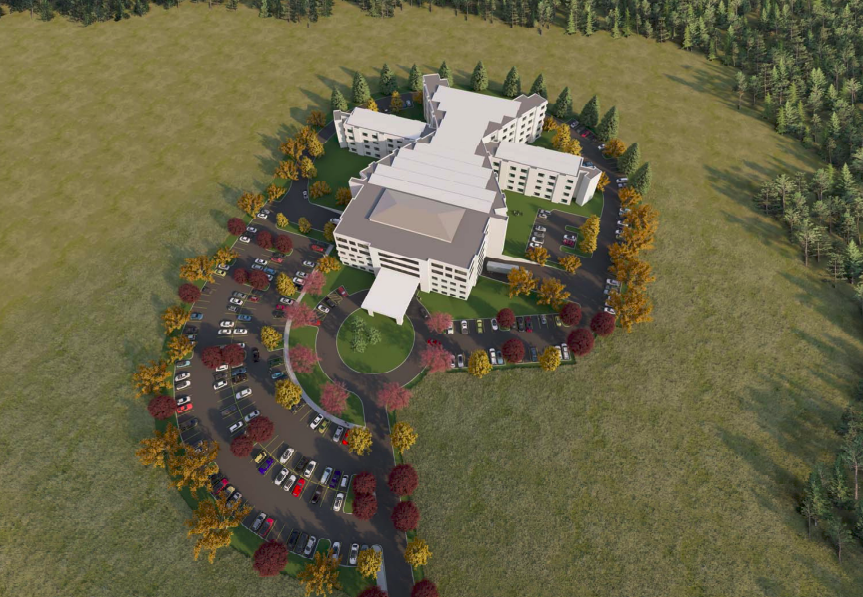Strafford County Chair Now Claims Low Bid Unworkable

After taking heat for picking the $180 million design for the proposed new Strafford County Nursing Home over a $50 million bid, and then saying he never saw the less expensive bid, Commissioner George Maglaras said Wednesday the low bid wasn’tould work.
“The commission picked the firm we thought had a track record of building larger nursing homes and there are other written responses required within the answering of the RFP,” Maglaras told NHJournal.
Republican members of the Strafford County Delegation blasted Maglaras, a Democrat, and the two other Democratic Commissioners this week after learning about the lower bid from EGA Architects. Rep. Cliff Newton said the Commission kept him and other delegates in the dark about the lower-cost bid on the 215-bed proposal.
“Strafford County Commissioners and administration never informed the delegation of the EGA’s lower cost plan. Instead, they chose a much more expensive and institutionalized building plan without exploring different options that would have been acceptable to the entire delegation,” Newton said.
When contacted Tuesday about the EGA bid, Maglaras initially told The Rochester Voice he never saw EGA’s bid. That’s despite the fact the NHJournal found records showing the Commission was presented with all six bids, including EGA’s, on the project in 2022 when they voted to go with Warrenstreet. By Wednesday, Maglaras blamed politics for the kerfuffle, and said he was misunderstood.
“I said that there was never a $40 million proposal put before us,” Maglaras said. “These claims by some of the Republican members are misguided and are inflammatory and political in nature.”
According to Maglaras, the EGA bid quoted the Commission a cost of $350 a square foot to build the new home. But that number was never going to work, he said. EGA cited its work building the Carroll County Nursing Homes 10 years ago in its bid to Strafford. However, the construction company hired by EGA in Carroll told a slightly different story, Maglaras said.
“I brought in Bonnette, Page and Stone who was the contractor that actually built the Carroll County Nursing Home designed by EGA and they told the entire delegation in a public meeting it would cost $600 a square foot to construct a similar facility today and that the (Carroll County) home does not meet present federal design standards,” Maglaras said. “Architects don’t build buildings, construction companies do. You need to compare apples to apples not apples to cherries.
Comparing Maglaras’ math, that means the EGA bid would have cost as much as $83 million at $600 per square foot, instead of the $50 million the company quoted. The Warrentstreet project costs close to $1,300 per square foot.
The Republicans on the delegation have twice blocked the Commission from getting bonds for the $180 million proposal, and the Nursing Home project is currently stalled out. Maglaras wants to see the project get back on track.
“We have offered to meet with all the parties to see if we can’t move the process forward. The offer still stands and we will be reaching out to them,” Maglaras said.



